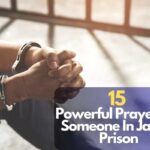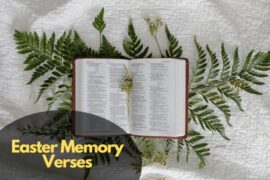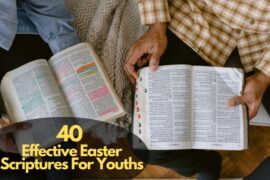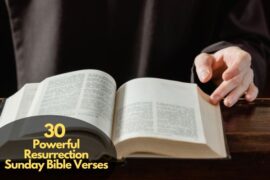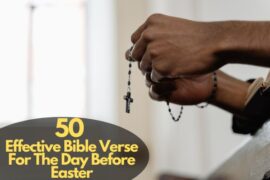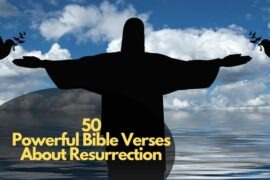In this article, we delve into the intricacies of the Bible ban in the Utah school district, exploring the perspectives of both proponents and opponents. We examine the constitutional considerations surrounding the separation of church and state, the importance of religious literacy in education, and the potential impact of such bans on students and society at large.
As the debate continues to unfold, it is crucial to navigate these complex issues with nuance and respect for the principles upon which our educational institutions are founded.
Contents
Bible Banned In Utah School District
The controversy surrounding the Bible being banned in a Utah school district has generated significant attention and debate. It revolves around the decision to prohibit the presence or use of the Bible in schools within the district. This decision has raised concerns about the limits of religious freedom and freedom of speech in educational settings. The controversy encompasses questions regarding the separation of church and state, the inclusivity of diverse religious beliefs, and the educational value of religious texts.
Importance of religious freedom and freedom of speech
Religious freedom and freedom of speech are fundamental rights that are protected in many democratic societies, including the United States. These rights allow individuals to practice their chosen religion freely and express their beliefs without fear of censorship or persecution. They play a crucial role in fostering tolerance, diversity, and the exchange of ideas within a society. Consequently, any restrictions on religious freedom and freedom of speech must be carefully evaluated to ensure a balance between individual rights and the broader interests of society.
Brief background on the Bible’s significance
The Bible holds immense religious, cultural, and historical significance for a significant portion of the world’s population. It is considered a sacred text in Christianity, and its teachings form the foundation of the faith for millions of believers. Moreover, the Bible has played a significant role in shaping art, literature, ethics, and Western civilization as a whole. Many argue that understanding the Bible’s content and its influence on various aspects of human culture is essential for a well-rounded education. Its inclusion in academic settings has been seen as an opportunity to explore its teachings in a scholarly and objective manner, promoting religious literacy and cultural understanding.
Background of the Utah School District
The Utah School District, which is at the center of the controversy, is a regional educational governing body responsible for overseeing multiple schools within a specific geographic area in the state of Utah. It may consist of elementary, middle, and high schools, serving a diverse student population.
Demographic and cultural context of the region
To understand the context in which the controversy unfolds, it is important to consider the demographic and cultural aspects of the region. Utah has a unique cultural landscape heavily influenced by the predominant religion in the area, The Church of Jesus Christ of Latter-day Saints (LDS Church), also known as the Mormon Church. The state has a high concentration of Mormons, and their religious beliefs and practices have historically influenced various aspects of the local culture.
Previous policies and practices regarding religious materials in schools
Prior to the Bible ban controversy, the Utah School District may have had policies and practices in place regarding the use of religious materials in schools. These policies might have addressed the inclusion or exclusion of religious texts in educational settings, the guidelines for teaching religion as part of the curriculum, and the balance between religious expression and maintaining a secular learning environment. Understanding these previous policies and practices can provide insights into the district’s approach to religious materials and how it has evolved over time.
Events Leading to the Bible Ban
The specific incident or trigger that led to the Bible ban in the Utah School District may vary, as it can be influenced by local circumstances and events. It could have been sparked by a complaint from a student, parent, or organization regarding the presence or use of the Bible in a school setting. This complaint might have raised concerns about the violation of constitutional principles, particularly the separation of church and state.
Key arguments and concerns raised by those in favor of the ban
Supporters of the Bible ban may have put forth several arguments and concerns. Some of the key points raised include:
1. Separation of church and state: Those in favor of the ban may argue that the presence of the Bible in public schools infringes upon the principle of separation of church and state. They may contend that public schools should maintain a secular environment and not favor or endorse any particular religious text.
2. Religious neutrality and inclusivity: Advocates for the ban might argue that prohibiting the Bible ensures religious neutrality and inclusivity within the school district. They may contend that allowing the Bible to be present could lead to favoritism towards Christianity and marginalize students from other religious backgrounds.
3. Avoiding potential legal challenges: Supporters of the ban may express concerns about potential legal challenges related to the establishment clause of the First Amendment. They may argue that by banning the Bible, the school district can avoid legal battles and maintain compliance with constitutional principles.
Responses and counterarguments from opponents of the ban
Opponents of the Bible ban would likely offer counterarguments and responses to the concerns raised by those in favor of the ban. Some of the key responses might include:
1. Freedom of religion and expression: Opponents may argue that the Bible ban infringes upon students’ and educators’ freedom of religion and expression. They may emphasize that individuals should have the right to study, discuss, and express their religious beliefs within appropriate educational contexts.
2. Educational and historical value: Those against the ban may highlight the educational and historical value of the Bible. They may assert that the Bible has influenced literature, art, philosophy, and history, and its exclusion from academic settings could hinder students’ understanding of cultural references and historical events.
3. Viewpoint discrimination: Critics of the ban might raise concerns about viewpoint discrimination. They may argue that by singling out the Bible for exclusion, the school district is unfairly targeting a specific religious text while allowing other secular or religious materials to be present in schools.
Arguments in Favor of the Bible Ban
One of the main arguments put forth in favor of the Bible ban is the concern for upholding the principle of separation of church and state. Supporters of the ban argue that public schools should be neutral and not endorse or promote any particular religious text. They believe that the presence of the Bible in schools could be seen as an endorsement of Christianity, thus violating the establishment clause of the First Amendment of the United States Constitution.
Protecting religious neutrality in schools
Advocates for the Bible ban argue that by prohibiting the presence of the Bible, schools can maintain religious neutrality. They contend that public schools should be inclusive and welcoming to students from diverse religious backgrounds. Allowing the Bible to be present may create an environment that favors one particular religion over others, potentially making students of different faiths or no faith feel excluded or marginalized.
Ensuring inclusivity for a diverse student population
Supporters of the Bible ban emphasize the importance of ensuring inclusivity for all students. They argue that public schools should be spaces where students feel respected and accepted, regardless of their religious beliefs. By banning the Bible, they believe that schools can create an atmosphere that is more inclusive and accommodating to the diverse religious and non-religious perspectives of their student body.
These arguments are centered around the idea that the Bible ban is necessary to maintain a secular and inclusive educational environment, free from favoritism towards any particular religion. Advocates of the ban contend that it is crucial to protect the rights and beliefs of all students and avoid any perception of religious endorsement by the school system.
Arguments Against the Bible Ban
Opponents of the Bible ban argue that it infringes upon individuals’ freedom of religion and expression. They contend that students and educators should have the right to study, discuss, and express their religious beliefs within appropriate educational contexts. Banning the Bible restricts the ability of individuals to exercise their religious freedom and engage in meaningful discussions about religious texts.
Recognizing the educational and historical value of the Bible
Critics of the ban emphasize the educational and historical value of the Bible. They argue that the Bible has significantly influenced literature, art, philosophy, and history, and it is essential for students to have exposure to this important cultural and religious text. Understanding the Bible’s teachings can provide valuable insights into the development of Western civilization and foster a broader understanding of cultural references and historical events.
Addressing concerns of viewpoint discrimination
Opponents of the ban raise concerns about potential viewpoint discrimination. They argue that singling out the Bible for exclusion while allowing other secular or religious materials to be present in schools could be seen as favoring certain viewpoints over others. They advocate for a balanced approach that allows for the inclusion of religious texts, including the Bible, as part of a diverse and comprehensive curriculum, thus ensuring that multiple perspectives are represented and respected.
These arguments against the Bible ban emphasize the importance of protecting individuals’ freedom of religion and expression, recognizing the educational and historical value of the Bible, and avoiding viewpoint discrimination. Critics of the ban assert that a well-rounded education should include the study and discussion of religious texts, including the Bible, in a respectful and academically rigorous manner.
Legal and Constitutional Considerations
To understand the legal and constitutional implications of the Bible ban, it is necessary to analyze relevant laws and legal precedents. This includes examining the First Amendment of the United States Constitution, which guarantees freedom of religion and freedom of speech. Additionally, relevant federal and state laws regarding the separation of church and state, such as the Establishment Clause, must be considered. Legal scholars and experts may offer interpretations and analyses of how these laws apply to the specific context of the Bible ban in the Utah School District.
Examination of court rulings related to religious materials in schools
Court rulings related to the presence and use of religious materials in schools provide valuable guidance in evaluating the constitutionality of the Bible ban. Supreme Court cases, such as Lemon v. Kurtzman and Edwards v. Aguillard, have set precedents for determining the constitutionality of practices involving religion in public schools. Examining these court rulings and their interpretations by legal experts can shed light on the legal landscape surrounding religious materials in educational settings.
Discussion of potential violations of constitutional rights
The Bible ban may be evaluated in terms of its potential violations of constitutional rights. This includes assessing whether the ban infringes upon individuals’ freedom of religion and freedom of speech as protected by the First Amendment. It also involves examining whether the ban is consistent with the principles of the Establishment Clause and the requirement of religious neutrality in public schools. Legal experts and constitutional scholars may provide analysis and arguments on whether the Bible ban in the Utah School District runs afoul of these constitutional rights.
Public Response and Controversy
The Bible ban in the Utah School District is likely to evoke strong reactions from various stakeholders. Parents may have differing opinions, with some supporting the ban for reasons of religious neutrality or inclusivity, while others oppose it for reasons of religious freedom or educational value. Students may also express their views, ranging from those who feel the ban infringes upon their rights to those who appreciate the separation of religion from their educational environment. Religious organizations may take positions aligned with their beliefs, advocating for or against the ban based on their interpretation of religious freedom and the importance of the Bible.
Organized protests, petitions, and advocacy efforts
Controversial decisions like the Bible ban often leads to organized protests, petitions, and advocacy efforts. Supporters and opponents of the ban may organize demonstrations or rallies to voice their concerns and make their stances known. Petitions may circulate, calling for the reversal or reinforcement of the ban, depending on the perspective of the individuals involved. Various advocacy groups, both religious and secular, may take an active role in promoting their positions and lobbying for changes in policy.
Media coverage and public discourse surrounding the issue
The Bible ban is likely to garner significant media attention and spark public discourse. Local and national news outlets may report on the controversy, providing coverage from different angles. Opinions and viewpoints from experts, religious leaders, educators, and community members may be sought and shared through interviews, articles, and opinion pieces. Social media platforms may also serve as spaces for public discussions, with individuals expressing their opinions and engaging in debates about the ban. The issue may become a topic of a broader conversation about religious freedom, the role of religion in public schools, and the boundaries of the separation of church and state.
The public response and controversy surrounding the Bible ban play a crucial role in shaping the narrative and influencing potential actions and decisions. The voices of parents, students, religious organizations, and advocacy groups, as well as the media coverage and public discourse, collectively contribute to the ongoing dialogue and potential resolution of the issue.
Resolution and Aftermath
The resolution of the Bible ban in the Utah School District may involve a variety of outcomes. The school district could choose to maintain the ban, citing the need to uphold the principles of religious neutrality and separation of church and state. Alternatively, they may revisit the ban and consider modifications or alternatives that address the concerns raised while still respecting constitutional rights. The district might engage in dialogue with stakeholders, including parents, students, religious organizations, and legal experts, to reach a decision that balances the competing interests involved.
Impact on religious freedom debates and policies at the national level
The Bible ban controversy in the Utah School District could have broader implications for religious freedom debates and policies at the national level. It may serve as a case study that sparks discussions about the appropriate boundaries between religion and public education. Legal scholars, policymakers, and advocacy groups could use this case to advocate for clarifying or revisiting existing guidelines regarding religious materials and expressions in public schools. The controversy may influence ongoing debates about religious freedom, the role of religion in public institutions, and the rights of individuals to practice and express their religious beliefs.
Long-term implications for religious expression in public schools
The aftermath of the Bible ban could have long-term implications for religious expression in public schools. The resolution of the controversy may set a precedent for how schools handle religious texts and materials in the future. It could lead to clearer policies and guidelines that strike a balance between religious freedom and the principles of a secular education system. The case could also prompt discussions and initiatives to enhance religious literacy and promote a better understanding of diverse religious traditions among students and educators. The resolution and subsequent actions taken by the Utah School District may shape how religious expression is approached and accommodated in public schools, not only within the district but potentially influencing practices in other regions as well.
Conclusion
In this content outline, we explored the topic of the Bible ban in the Utah School District. We discussed the controversy surrounding the ban, the importance of religious freedom and freedom of speech, and the significance of the Bible as a religious text. We examined the background of the school district, including its demographic and cultural context, as well as previous policies and practices regarding religious materials in schools. We delved into the events leading to the Bible ban, considering the specific incident or trigger, arguments in favor of the ban, and responses from opponents. We also examined the legal and constitutional considerations, public response and controversy, and potential resolutions and their aftermath.
The Bible ban in the Utah School District represents a complex and contentious issue at the intersection of religion, education, and constitutional rights. It highlights the ongoing debate over the appropriate role of religion in public schools and the challenges of balancing religious freedom with the principles of a secular education system. The ban has sparked passionate responses from various stakeholders, reflecting the deeply held beliefs and values surrounding religious expression and inclusivity.
The Bible ban in the Utah School District underscores the importance of finding a delicate balance between religious freedom and educational policies in diverse societies. While it is crucial to respect the rights of individuals to practice and express their religious beliefs, it is equally important to maintain a secular learning environment that is inclusive and respects the diverse religious and non-religious perspectives of students. Achieving this balance requires thoughtful consideration, open dialogue, and a commitment to upholding constitutional principles.


